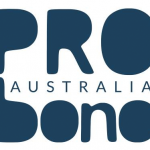A New Era of Evidence-Based Giving

12 June 2018 at 7:30 am
Your not for profit does life-changing work. But could it be better? And how should you report impact to donors?
The Global Evidence and Implementation Summit (GEIS), taking place in Melbourne from 22 to 24 October 2018, will help not for profits to use evidence better to improve their programs, policies and practices – and deliver stronger impact reporting for donors.
One of the headlining GEIS 2018 speakers is Caroline Fiennes, director of Giving Evidence, a UK-based organisation that promotes charitable giving based on sound evidence.
“We often talk about ‘what is your impact?’ In a way, this is a very boring question, it’s the wrong question,” Caroline explains.
Rather than not for profits only focusing on the current impact of their work, Caroline advises organisations to look at what the existing evidence says about their interventions. And to use that evidence to determine what they could be doing differently that could be more effective.
“Evidence-based giving is currently hard, and often impossible, because the evidence doesn’t exist, it’s unreliable or hard to find. Giving Evidence works on improving the quality, findability and use of sound evidence by not for profits and donors,” she says.
There has been a surge of not for profits producing their own evidence to determine their effectiveness and prove their impact to donors. While this is a step towards understanding the role of evidence in the not-for-profit sector, Caroline encourages organisations to use existing research rather than produce it themselves. Because, while not for profits are usually very skilled at implementing their interventions – such as providing malaria bed nets or installing new water sources – they typically aren’t specialised in producing research. Nor do they often have the funds, skills or sample size to do so reliably.
So how can not for profits find and use reliable evidence in new ways?
GEIS will deliver the latest evidence synthesis and implementation research and practice strategies for improving the lives of individuals, families and communities globally.
GEIS 2018 has an impressive lineup of speakers from around the world. Alongside Caroline Fiennes, other key summit speakers include Hirokazu Yoshikawa, professor and co-director of New York University’s Global TIES for Children centre, and Richard Weston, CEO of the Aboriginal and Torres Strait Islander Healing Foundation.
The summit will be specifically valuable for individuals and leaders working in sectors with a strong focus on the uptake of evidence, including child and social welfare, education, humanitarian aid, crime and justice, international development, environment and climate change, and health and human services.
Expected to attract more than 700 attendees from 30 countries, the summit will be a unique learning and networking opportunity for funding and implementing agencies, policy makers, practitioners, knowledge brokers and researchers.
Summit themes include:
- understanding what works
- achieving scale and sustainability
- methods for impact and implementation evaluation and synthesis
- using evidence for better policy, programs and practice
- national and global cooperation and partnerships.
GEIS 2018 is being co-hosted by the Campbell Collaboration and the Centre for Evidence and Implementation. The summit combines their two prominent conferences: the 4th Australasian Implementation Conference and the What Works Global Summit 2018.
The summit has garnered support from many well-known organisations worldwide, including Save the Children, the European Implementation Collaborative, and IFAD. Bursaries for accepted speakers to attend the summit from developing countries are being generously supported by UNICEF.
Early-bird registrations for GEIS 2018 are now open. Student rates and day registrations are also available.








